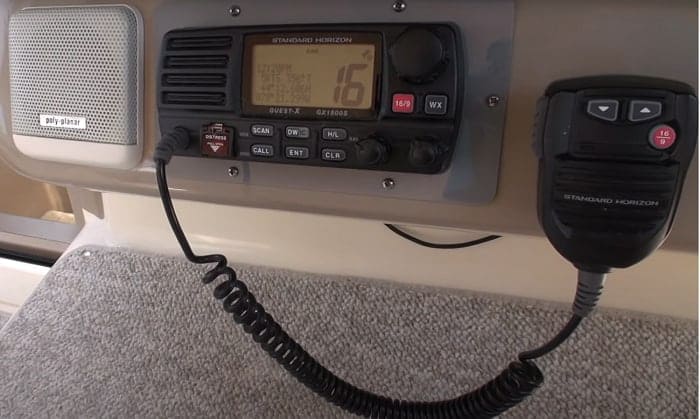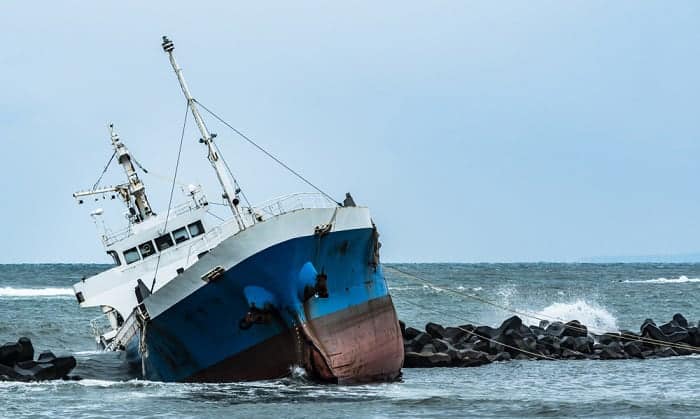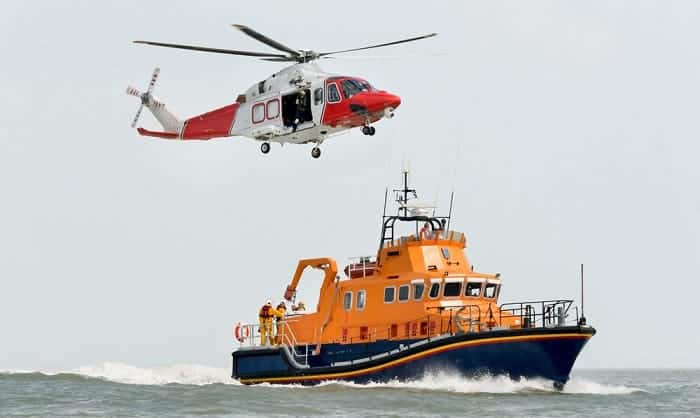Working at sea bears almost no resemblance to working on land because you can hardly find some help in your time of need. Even when you have carefully prepared before embarking on a trip, things might not live up to your expectations and end up being out of your control.
But, fortunately, like 911, there is also a support and emergency department for people and boats in distress at sea, which can be reached through a Mayday call.
If you are wondering, “when operating a VHF marine radio when should the term mayday be used,” the following article is for you. Let’s get started!
Table of Contents
When Operating a VHF Marine Radio When Should the Term Mayday Be Used
A Mayday call is used when you are in a situation that cannot be handled and require immediate help.
However, keep in mind that when you create a Mayday call, the Coast Guard that receives the notification will depart with a large force and support equipment. It requires a lot of preparation and costs, so make sure that you assess your situation properly to avoid making a useless call.
If you are going to operate a VHF marine radio, when do you need to use Mayday?
- A fire aboard: There will be regulations prohibiting the use of fire on boats. But violations will lead to an uncontrollable situation. In addition, damaged shipboard machinery also creates flames. You know, the fire in the middle of the sea will be much harder to put out.
- A boat that is capsized: Capsizing seems to be one of the most tragic accidents. If your ship shows signs of loss of balance, make a Mayday call immediately.
- A boat caught in stormy and severe weather – Ships fishing or transporting long distances often encounter these situations. They can’t predict the weather accurately, so they’ll need rescue before the storm gets out of control.
- A medical emergency – There are ships with emergency crews available. However, serious situations are too difficult to deal with due to a lack of technology and equipment.
How to Make a Mayday Call on a VHF Radio
Making a mayday call requires specific procedures to get a job done correctly and efficiently. Here are the steps to create a Mayday call:
Step 1: Transmit distress signal
Locate the DISTRESS button, then lift its cover. Hold the button until the radio “beeps.” At this time, the Coast Guard office will receive a signal from you.
Step 2: Clarify the current situation
After the “beeps” sound, begin articulating the necessary information. Make sure the following terms are fully explained:
- Who: You need to specify the exact name of your ship. The syntax could be “Mayday, Mayday, Mayday. This is ship (use your boat name). ” Repeat that sentence three times and make sure that the transmission power is at the highest level.
- Where: Your exact location is critical. It helps to limit the time the Guard searches. Please use GPS to provide the specific latitude and longitude of the ship’s position.
If it is impossible to provide them, you must say all the relative positions you remember. Examples are distance to shore, the initial direction of travel, time to pass through a harbor, final place. Movement speed also needs to be declared.
- What: What problem are you facing? Remember to describe briefly and fully. Is your ship sinking? Has anyone been injured, and what is the current condition? Got a big/small fire on board?
- Kind: What support do you need? State the focus of your request: a medical team, a fire brigade, or a pump, etc.
- Number: How many people are onboard currently? How many people were seriously injured? How many people got hurt?
- Seaworthiness: A more detailed description of the extent of damage/injury. For example, the height of the water on the ship, how much is the fire percentage?
- Description: Your ship’s origin is also essential information. Please provide information on ship type, area, manufacturer, age, superstructure, etc.
When you’re finished, say “OVER” to imply that you’ve said all the information. At this point, the watchstander on duty knows your status. Wait for about a minute for the call to go to the Coast Guard, and they will talk directly to you, instructing you on how to control the situation temporarily.
During the call, make sure you stay as calm as possible. It’s best to keep your voice low, not yelling, speak clearly, and slower than usual so that it’s easier for the Coast Guard to hear your answers and memorize them.
For more information and demonstration, please refer to this video.
Frequently Asked Questions
What is the difference between a Mayday call and a Pan-Pan call?
The Mayday call is different from the Pan-Pan call in terms of the severity of the situation. A Mayday call is used in serious situations which need immediate help because someone is seriously injured or many people’s lives are in danger.
Pan-pan calls are also used in situations where help is needed but not immediately. For example, when the engine malfunctioned, making the ship leak slowly but the leaking can be controlled.
What should I do if I made a false Mayday call?
If you accidentally let a Mayday call be made, immediately contact the Coast Guard to say it was a mistake, and you want to dissolve the call. You can either reach them on your marine radio or by phone.
Is there a penalty for making false or accidental Mayday calls?
The Coast Guard says false Mayday calls are being made more and more often. Responding to Mayday calls takes a lot of effort and cost because the preparation for sea rescue is enormous. So false calls will be severely punished.
Specifically, the person who commits this prank can be fined in three ways: jail for six years, a $250,000 criminal fine, or a $5,000 civil fine, depending on the government’s regulations.
Wrapping Up
All in all, the above explanation has provided some important notes about Mayday calls, including when you should make one and how to make the call. Hopefully, if you are operating a VHF marine radio, this article “when operating a VHF marine radio when should the term mayday be used” will help you make successful calls and avoid all the risky situations.

After four years working as a radio mechanic, I know that everything about radio communication is not breezy, even though it greatly benefits us. That is why I set up a website sharing my skills and guides to help non-professional users use their radio headsets, set up their antennas or choose the right products, etc.




